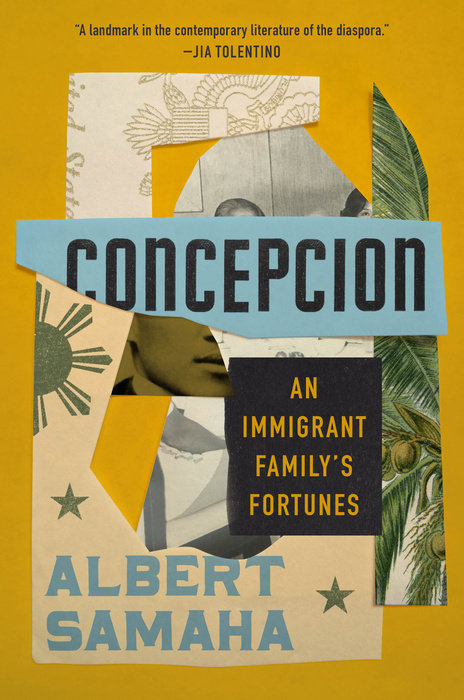Concepcion: An Immigrant Family’s Fortunes by Albert Samaha (Riverhead)
“The empire tells the stories,” Albert Samaha says early on in his compelling memoir, Concepcion, which traces the immigration of his extended family from the Philippines to California before he was born. “Without having to do anything, I was born into the empire of the age.” He reclaims his own story by weaving an epic tale populated by remarkable characters, including his great aunt who escapes the sword of a Japanese soldier, and his mother, a Trump fan and QAnon follower, who is the target of a banking scam by a beau she meets online. Then there is Uncle Spanky, who leaves behind life as a rock star in the Philippines, where he was “one of the most famous people in the country,” to work at San Francisco International Airport. As Samaha seeks to assess the happiness of the generation that made his life possible, he unpacks the motivations of his family through rich historical detours: to understand them, you need to know Magellan. Samaha doesn’t stop with Spanish occupation of the Philippines, but navigates the earlier arrival of Muslim missionaries, the later occupation by the Japanese army, and America’s imperialist presence, an extension of its own racialized landscape, reflected in the oppression of Black Americans, bans on Chinese immigration, and the presence of the Klan in California.
Samaha, an investigative journalist who wrote the book with the support of a Whiting Foundation Creative Nonfiction grant, succeeds in this ambitious endeavor thanks not only to his expansive research and his longform chops, but also his gifts as an entertaining storyteller and his willingness for self-reflection. He dissects his own adolescent sense of identity, including his disconnection to Asian identity and his attraction to Black culture, acknowledging, “What a luxury it is to adopt Black culture without the weight of being Black.” He recounts later filling out the 2020 census form by checking Asian-Filipino and Hispanic, and writing in Lebanese Arab for his father’s side of the family, then imagining a census worker “hitting a big red button and shouting, ‘Stop the count! Stop the count! We’ve got it all wrong!” How do you tell your story as a citizen of a nation that doesn’t even make space for you in the census boxes? The answer: create new forms. Samaha does this by impressively expanding the capacity of the autobiography to make room for the epic story and family that shape him, while also turning the mirror back on “the empire of the age.” The result is truly extraordinary.



